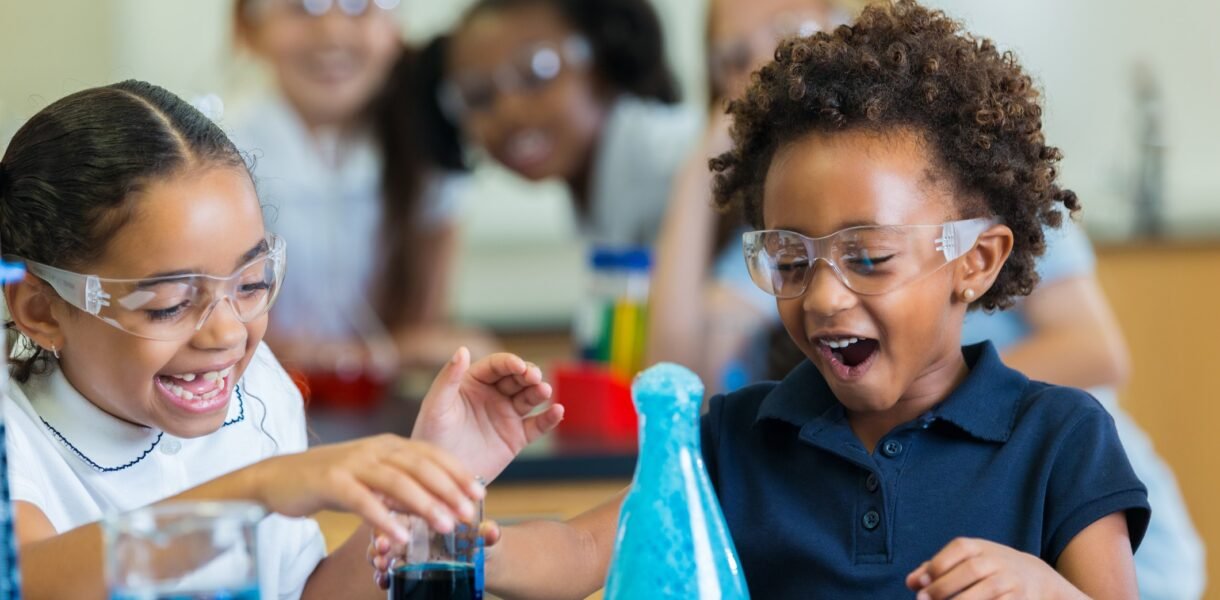Choosing the right toys for your kids can be a challenging task. Not only do you want them to have fun, but you also want to ensure that the toys contribute to their development and learning. In this blog post, we have compiled a list of the best 10 toys that provide both entertainment and educational value for your little ones.
1. Building Blocks
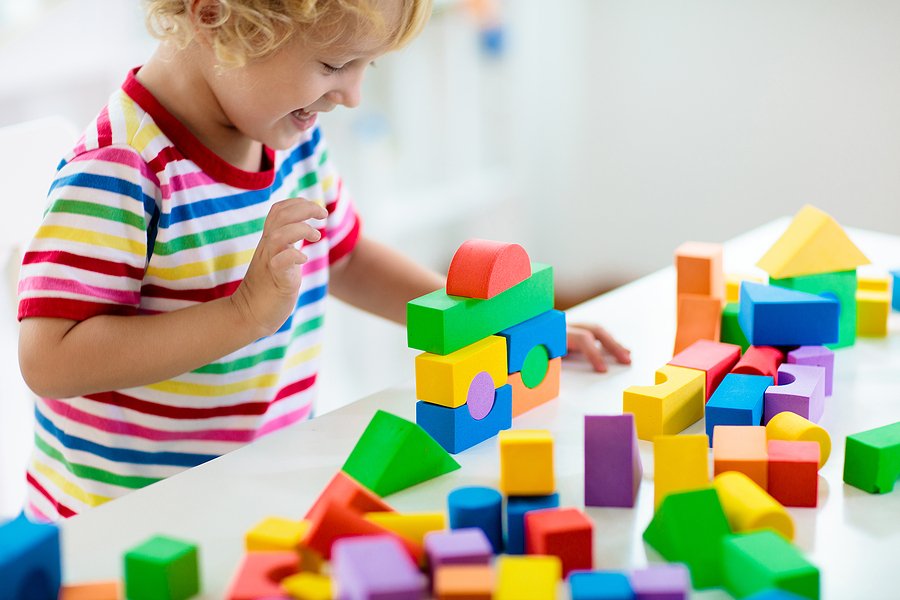
Building blocks are more than just toys; they’re essential tools for childhood development. As children stack, sort, and build with blocks, they engage in a wealth of learning experiences. From enhancing fine motor skills and hand-eye coordination to fostering creativity and problem-solving abilities, building blocks offer a myriad of developmental benefits. Through experimentation and exploration, children learn about shapes, colors, patterns, and spatial relationships.
Moreover, block play encourages imagination and social interaction as kids collaborate to construct imaginative structures. By providing a foundation for cognitive, physical, and social development, building blocks pave the way for a lifetime of learning and growth.
2. Puzzles
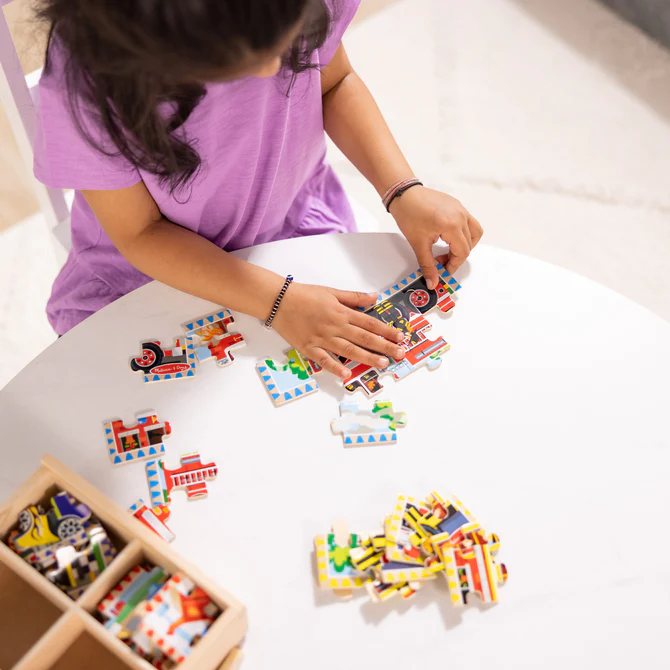
Puzzles are powerful tools for children’s development, offering a multitude of cognitive and motor skill benefits. As children piece together puzzles, they engage in critical thinking, problem-solving, and spatial reasoning. By identifying shapes, colors, and patterns, they enhance their visual discrimination and perception skills.
Puzzles also promote fine motor skills and hand-eye coordination as little hands manipulate and place pieces into their correct positions. Furthermore, completing puzzles instills a sense of accomplishment and boosts self-esteem, encouraging perseverance and resilience in the face of challenges. Whether it’s a simple wooden puzzle or a complex jigsaw, puzzle play provides an enriching and enjoyable way for children to learn and grow.
3. Art Supplies
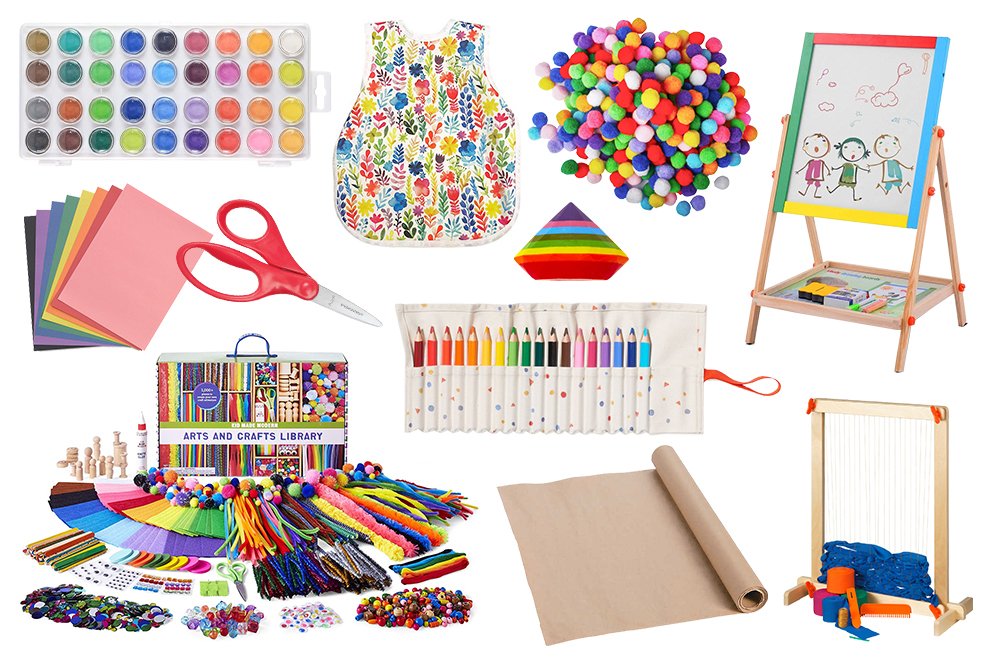
Art supplies serve as catalysts for children’s creativity and overall development. Through exploration with paints, crayons, markers, and other artistic tools, children express themselves freely, honing their fine motor skills and hand-eye coordination as they manipulate various materials. Engaging in art activities fosters imagination and problem-solving abilities as children experiment with colors, shapes, and textures to bring their ideas to life.
Moreover, creating art promotes emotional expression and self-discovery, allowing children to communicate their feelings and experiences visually. Art activities also encourage cognitive development by stimulating critical thinking and spatial awareness. Overall, the use of art supplies offers a holistic approach to learning, nurturing children’s physical, emotional, and cognitive growth while providing them with a means of self-expression and exploration.
4. Musical Instruments

Introduce your child to the world of music with age-appropriate musical instruments. Playing instruments enhances coordination, rhythm, and auditory skills. It also fosters a love for music and can be a source of joy and self-expression. Additionally, mastering rhythmic patterns and melodies promotes cognitive development, enhancing memory, concentration, and problem-solving abilities. Musical exploration encourages creativity and self-expression, providing an outlet for emotional release and imagination.
Furthermore, collaborative music-making experiences cultivate social skills, as children learn to listen, communicate, and cooperate within a group setting. Whether strumming a guitar, tapping a drum, or blowing a flute, the journey of learning an instrument not only nurtures a love for music but also cultivates a well-rounded foundation for lifelong learning and personal growth.”
5. Board Games
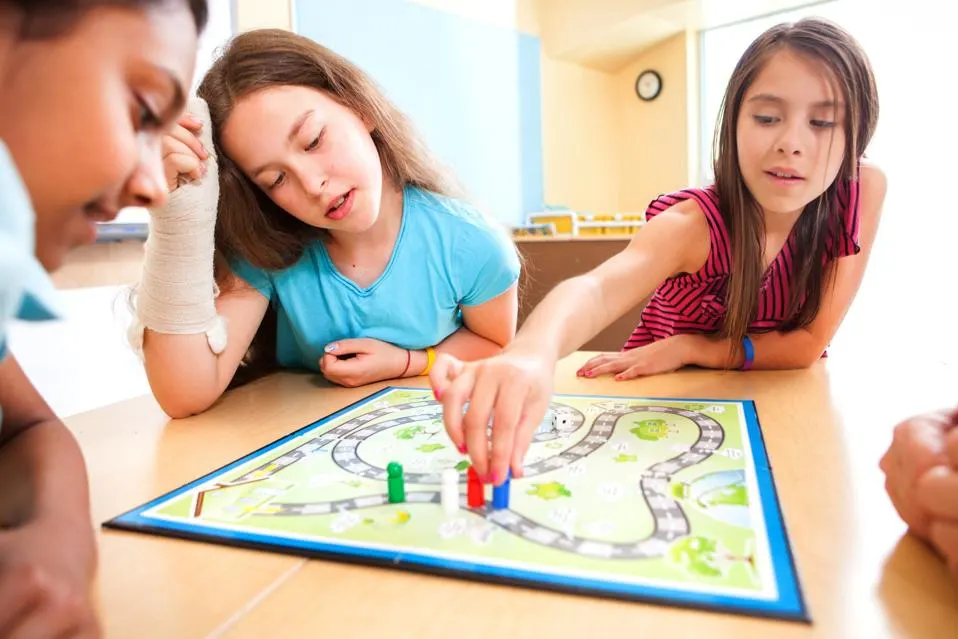
Board games serve as delightful pathways to childhood development, offering a tapestry of benefits woven through engaging play. As children participate in board games, they sharpen critical thinking skills, strategizing to outwit opponents and solve complex problems. These games promote cognitive development by fostering decision-making, planning, and spatial awareness.
Moreover, board games provide opportunities for social interaction, encouraging communication, teamwork, and sportsmanship as players collaborate and compete in a friendly setting. Through gameplay, children also enhance their emotional intelligence, learning to manage disappointment, celebrate success, and navigate various social dynamics.
From classics like Monopoly to modern gems like Settlers of Catan, board games not only entertain but also enrich children’s lives, nurturing valuable skills and fostering lifelong friendships. Choose games that are suitable for your child’s age and interests.
6. Science Kits

Science kits spark wonder and curiosity in children, igniting a passion for exploration and discovery. Through hands-on experimentation with science kits, children engage in inquiry-based learning, asking questions, formulating hypotheses, and conducting experiments to find answers. These kits encourage critical thinking and problem-solving skills as children analyze data, draw conclusions, and make connections between scientific concepts and real-world phenomena.
Additionally, science kits promote STEM (science, technology, engineering, and mathematics) education, introducing children to various scientific principles and sparking an interest in these fields from an early age.
Moreover, the process of working with science kits fosters perseverance and resilience, as children learn to embrace challenges and persist in their pursuit of knowledge. By inspiring curiosity and instilling a love for science, these kits lay the foundation for a lifelong journey of learning and discovery. From chemistry sets to microscope kits, there are plenty of options to choose from based on your child’s interests.
7. Building Sets
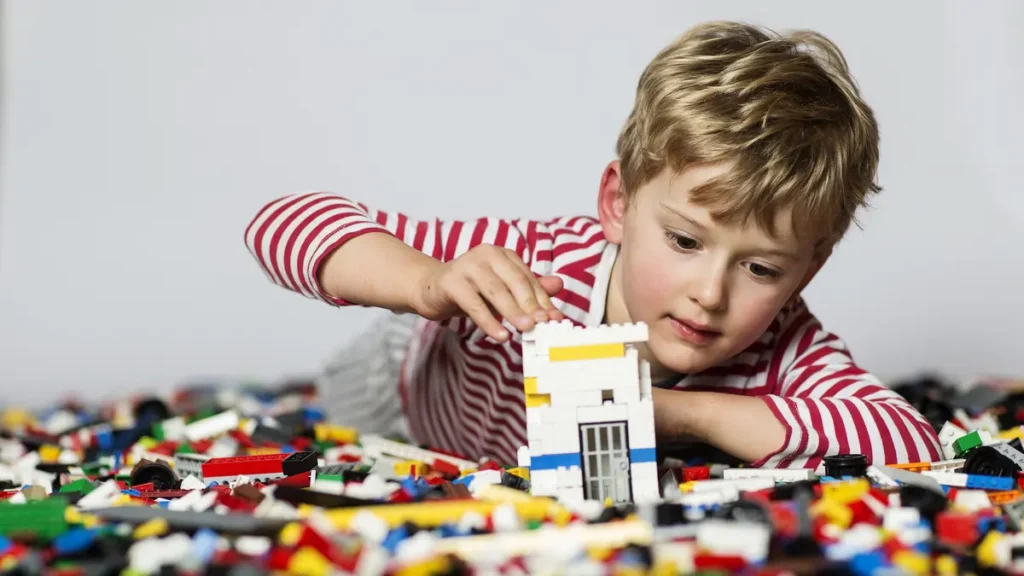
Building sets are more than just toys; they’re tools for nurturing creativity, problem-solving skills, and spatial awareness in children. As kids engage with building sets, whether it’s LEGO, magnetic tiles, or wooden blocks, they embark on a journey of imagination and exploration. Through hands-on manipulation of pieces, children develop fine motor skills and hand-eye coordination, honing their ability to grasp, stack, and connect various components.
Additionally, building sets encourage critical thinking and planning as children envision, design, and construct their creations, solving challenges and overcoming obstacles along the way. Moreover, collaborative play with building sets fosters social skills, promoting communication, cooperation, and teamwork as children work together to bring their ideas to life.
From towering skyscrapers to intricate structures, building sets provide endless opportunities for learning, growth, and endless fun.
8. Outdoor Toys
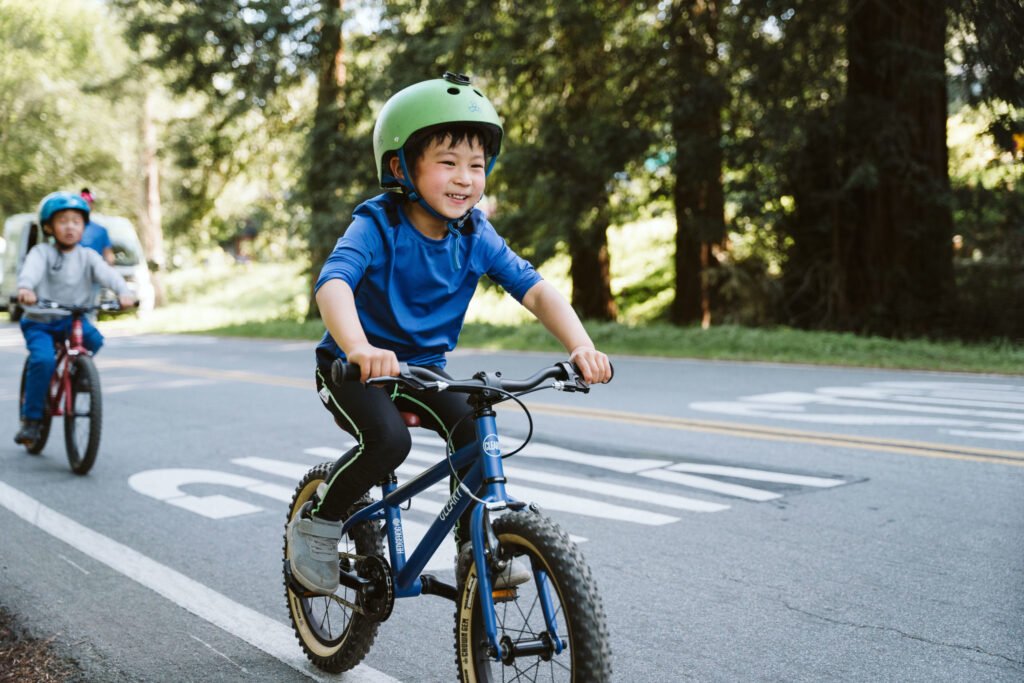
Outdoor toys such as bicycles, scooters, or sports equipment promote physical activity and gross motor skills. They encourage children to explore the outdoors, develop coordination, and improve their overall fitness. Outdoor toys are essential tools for fostering holistic development in children, offering a playground of benefits for physical, cognitive, and social growth. As children engage with outdoor toys like swings, slides, and climbing structures, they embark on a journey of active exploration and physical challenge.
Through running, jumping, and climbing, kids develop gross motor skills, coordination, and balance, promoting overall physical fitness and health. Moreover, outdoor play stimulates sensory experiences, as children interact with natural elements like sand, water, and grass, engaging their senses and enhancing spatial awareness.
Additionally, outdoor toys encourage imaginative and social play, fostering creativity, communication, and cooperation as children invent games, share experiences, and make new friends. From stimulating adventures to cooperative teamwork, outdoor toys provide endless opportunities for learning, growth, and joyful exploration in the great outdoors
9. Role-Playing Toys
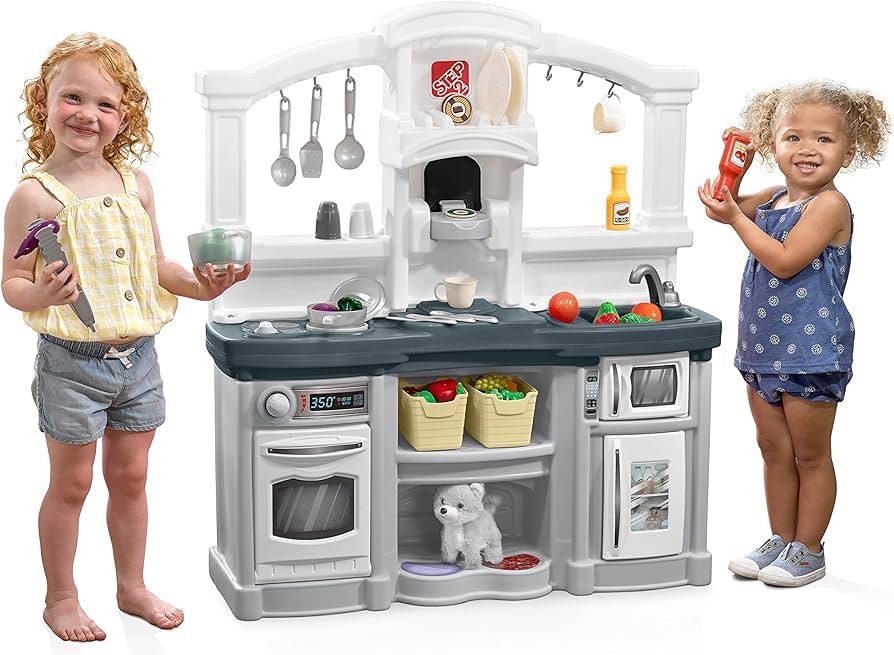
Role-playing toys serve as portals to imaginative worlds, where children explore, experiment, and learn through pretend play. Whether donning costumes, wielding toy tools, or setting up a pretend kitchen, these toys provide a stage for children to inhabit different roles and scenarios. Through role-playing, children develop crucial social and emotional skills as they navigate various roles, emotions, and interactions. They learn empathy as they take on different perspectives and understand others’ feelings.
Moreover, role-playing fosters creativity and problem-solving abilities as children invent scenarios, create storylines, and adapt to changing circumstances. Additionally, role-playing toys encourage language development as children engage in dialogue, negotiation, and storytelling.
From doctors and firefighters to chefs and astronauts, role-playing toys empower children to explore their interests, express themselves, and develop a deeper understanding of the world around them.
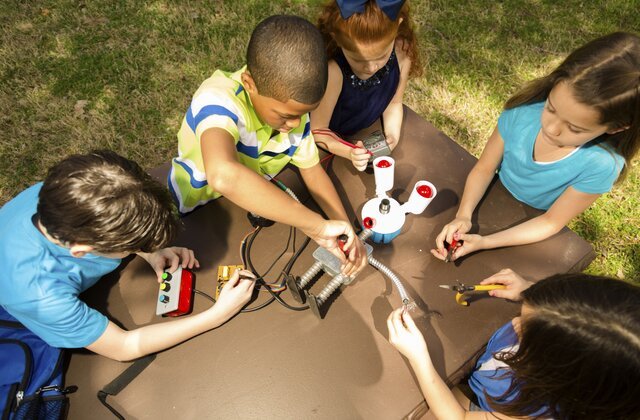
10. STEM Toys
STEM (Science, Technology, Engineering, and Mathematics) toys are designed to introduce kids to these fields in a fun and interactive way. They promote problem-solving, critical thinking, and logical reasoning skills. From coding robots to circuit kits, there are numerous options available for different age groups.
Remember, while toys play a significant role in your child’s development, it’s important to balance playtime with other activities such as reading, outdoor play, and social interactions. By providing a variety of toys that cater to different aspects of your child’s growth, you can ensure they have a well-rounded and enjoyable playtime experience.

